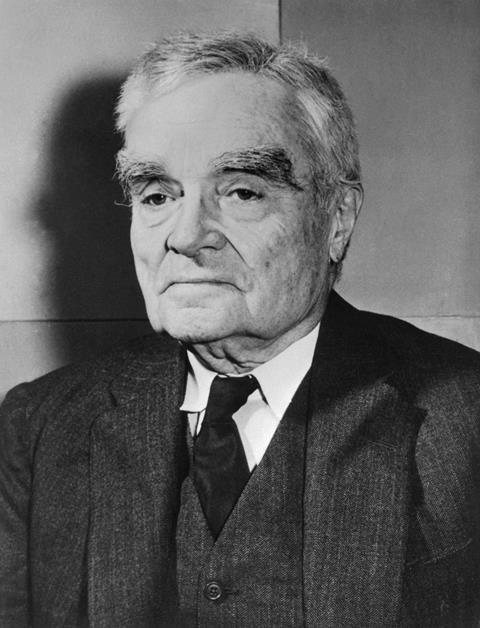Beauty and the Law
Mark Fowler
£26, Connor Court Publishing
★★★★★
At the very beginning of the Christian era, the apologist Tertullian posed the rhetorical question: ‘What has Athens to do with Jerusalem?’. In Beauty and the Law Dr Mark Fowler demonstrates that the answer is, well, quite a lot actually.
In this accessible collection of lectures, Fowler reminds us that within both the classical tradition of Greece and Rome, and the Judeo-Christian tradition, there are persistent affirmations of the psychocultural relationship between the true, the good, the beautiful and the just. Aristotle, for example, in what was for him a rare moment of poetic indulgence, famously wrote: ‘Great is truth, and more beautiful than the morning star’.
While reminding us of common themes in these great intellectual traditions, Fowler mounts a compelling case against the pessimism of post-modernist critical theory. By this I mean the worthy pretence that human beings are without hope; the notion that it is an illusion to think that there can be common ground between human beings as to what is true or good or beautiful or just; and the associated and hopeless notion that passive victimhood is the essential and perhaps only real political virtue.
Closer to home, within the tradition of the common law, the relationship between truth, justice and beauty are almost axiomatic. Fowler’s lectures are prompts to sensitise time-poor, practice-focused lawyers to the real relationship between the just, the beautiful and the true. In that regard, even harassed, practising lawyers can appreciate, if we are sufficiently alert to it, the force of his insights in our daily lives and our daily practice.
Judge Learned Hand (pictured), the greatest US judge of the 20th century, had occasion over a very long judicial career to reflect upon what made work as a judge worthwhile; it being obvious that no one would do it for the money. There is real beauty in the forceful elegance of Hand’s judgments, even a hundred years on. Hand’s considered opinion was that the great reward, and indeed the only real personal reward of judicial office, is the aesthetic satisfaction to be derived from devising the fittest legal solution to the problems of human conflict; the problems that are presented to the courts.

In this regard, Hand was acknowledging the deep joy that human beings derive from solving, and solving well, the problems thrown up by our environment, including especially the problems involving disputation and disruption in our social relationships. Importantly, we are not speaking here of the desire to prevail as a party in any of those conflicts. We are not speaking of a Nietzschean will-to-power in contest with others. The insistence of the common law tradition on judicial independence and impartiality is entirely inconsistent with such an ideal.
The psychological and cultural power of the great tragedies of Aeschylus, Sophocles and Euripides remains of universal appeal because those plays engendered what Aristotle referred to as ‘pity and terror’.
All of us can see that the situations presented in those tragedies are tragic. They are tragic because they were apparently unavoidable. But they are also tragic precisely because they should have been avoidable.
As in The Oresteia by Aeschylus, it is the gift of the jury that enables us to resolve those tragic problems. It is the gift of our legal system that enables all of us to see the true occasions of justice. Human tragedy should be avoidable. That is our job. And we humans, in virtue of our common humanity, are capable of seeing that and of acting accordingly.
And so, I commend Fowler’s book as an aid and as a prompt to meditate upon these very large themes that are immanent in our daily lives and work as lawyers, however mundane that work might sometimes seem.
These lectures champion the essential, hopeful view that we can know an injustice when we see it, even if we have not been its victim. I commend Beauty and the Law to you and I’m delighted to declare this book launched.
Patrick Keane is a former Australian High Court justice































No comments yet